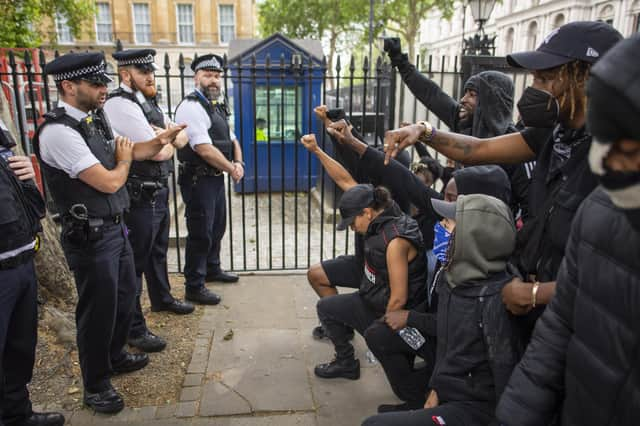Covid: How racism made the pandemic worse for Black and ethnic minority communities – Dr Gwenetta Curry


Co-Power: the Consortium on Practices for Wellbeing and Resilience in BAME Families and Communities, an inter-disciplinary Economic and Social Research Council-funded research team led by Professor Iyiola Solanke, of the University of Leeds, has spent the last 18 months investigating the combined impact of Covid across all aspects of the lives of racialised families and communities in the UK.
The project consisted of five different work packages: emergency powers; children, young people and families; care, caring and carers; physical activity and nutrition; and empowering BAME families and communities through positive narratives.
Advertisement
Hide AdAdvertisement
Hide AdThe projects investigated a wide range of challenges from over-policing in the Black community to the treatment of carers during the pandemic. The results of this research and the subsequent recommendations were presented to MPs at Westminster last month.
Addressing institutional and structural inequalities must be made a priority by all political parties in order to ensure a more equitable system.
Before the pandemic, racialised minorities were already experiencing a higher level of surveillance than their white counterparts.
“Over-policing instilled fear across the generations and deterred BAME people, including the mobile elderly, from leaving crowded homes for legitimate exercise, and those that did faced the risk of receiving a fixed penalty notice and a criminal record,” a Co-Power policy note said.
Previous studies have shown the fear and anxiety that interactions with police cause reduce one’s quality of life.
The ability to engage in physical activity and consume a healthy diet were negatively impacted by the pandemic and lockdown restrictions forced community groups that support physical activity, healthy eating and mental wellbeing to close. Those that continued to operate experienced a significant increase in demand alongside a huge loss in resources.
Co-Power’s recommendations therefore emphasised the importance of trust and access to support. The research results demonstrate the need to move away from a ‘one-size fits all’ approach and take seriously the various needs of diverse communities.
Another area of focus was on the impact of the pandemic on social care workers and unpaid carers helping older populations.
Advertisement
Hide AdAdvertisement
Hide AdDuring the pandemic, Black social care workers experienced a great deal of racism and discrimination from the vulnerable populations they cared for.
Not only did carers have to endure abuse, they also remained massively underpaid and faced challenges to accessing proper PPE. During the first Covid wave, the government’s decision to prioritise hospitals for PPE meant social care staff were left exposed.
Co-power used arts and media communications effectively to express the cocktail of challenges Covid presented for racialised minorities.
This research resulted in the production of a documentary and stage-play, Breadth, which showed the particular challenges these minority communities faced during the pandemic.
I had the pleasure to see the play and it really demonstrated the various conundrums communities faced while working and commuting. The documentary also laid bare the impact of over-policing on Black communities and its long-term, damaging effects on families.
Details of future screenings of the play and documentary can be found on the Co-Power website and enquiries can be sent to [email protected].
Dr Gwenetta Curry is an Edinburgh University lecturer on race, ethnicity and health
Comments
Want to join the conversation? Please or to comment on this article.

